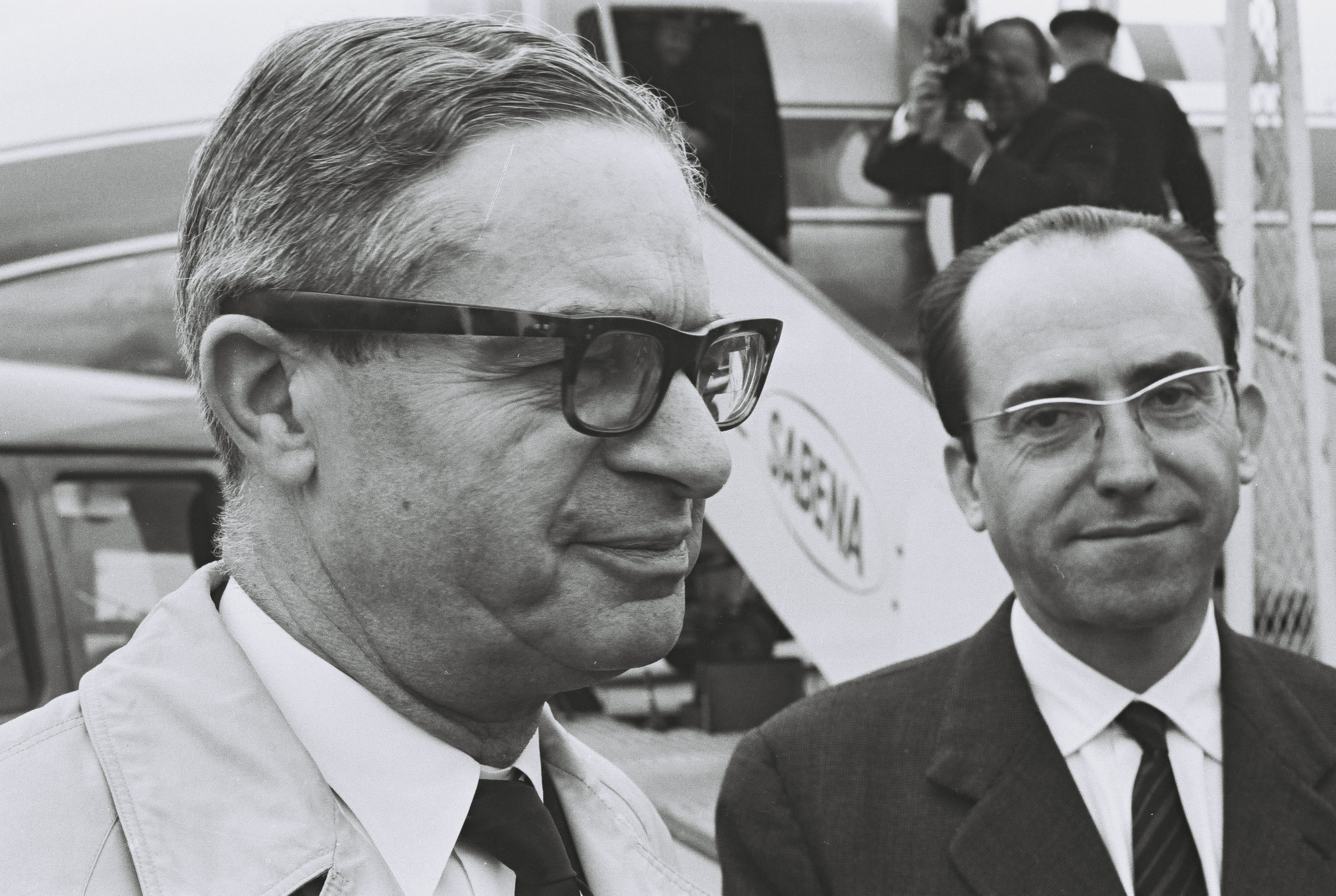- Jean Rey (politician)
Infobox_President | name =Jean Rey
nationality =Belgian

order =2ndPresident of the European Commission
term_start =1967
term_end =1970
vicepresident =
predecessor =Walter Hallstein
successor =Franco Maria Malfatti
birth_date =birth date|1902|7|15|mf=y
birth_place =Liège,Belgium
death_date =death date and age|1983|5|19|1902|7|15|mf=y
death_place =Liège,Belgium
party =Liberal Reformist Party
spouse =
religion =
order2 =
term_start2 =
term_end2 =
president =
predecessor2 =
successor2 =|Jean Rey (
July 15 ,1902 –May 19 ,1983 ) was a Belgian lawyer and Liberal politician who becamePresident of the European Commission .Early life
Born in Liège in a
Protestant family, he studied law at theUniversity of Liège , where he obtained a PhD in 1926. He began his career as a barrister at the Court of Appeal in Liège. His commitment to theWalloon Movement drew him into politics. He joined the Liberal party and was elected city councillor of Liège in 1935. In 1939, he won a seat in theBelgian Chamber of Representatives .In the wake of
World War II , he was one of the most vocal opponents of the policy of "independence" (in fact, neutrality) of the Belgian government and Léopold III. Mobilized as reserve officer in 1940, he was captured by the Germans and spent the rest of the war in in the Nazi concentration campOflag XD (Offizier-Lager; E:officer camp) nearFischbeck , where he was member of the clandestineMasonic Lodge L'Obstinée [ [http://www.mason.be/en/rey.htm Jean Rey (1902-1983)] ]Career after World War II
After the war, he became an advocate of the federalization of
Belgium . As early as 1947, he promoted a bill on the organization of a federal state. However, a majority in the Belgian Parliament refused to take it into consideration.Rey was Minister of Reconstruction from 1949 until 1950, and Minister of Economy from 1954 until 1958. As such, he was involved both in the early development of the
European Coal and Steel Community and in the negotiations that led to the creation of theEuropean Economic Community (EEC) and theEuropean Atomic Energy Community (EAEC).Member of the Commission (
Hallstein Commission ) of the CEE from 1958 until 1967, responsible for external relations, he played an important role in the negotiations of theKennedy Round (1964 – 1967).In 1967, he succeeded
Walter Hallstein as President of the European Commission (he was the first President of the Commission of the merged CSCE, CEE and EAEC). Still a convinced federalist, he undertook to reinforce the Community institutions. He won increased powers for theEuropean Parliament and advocated its election by universal suffrage. During his presidency, he oversaw the completion of thecustoms union (1968).He also played an important role the Summit of The Hague in 1969, where the European leaders decided to relaunch European integration with two new initiatives: on the one hand,
Economic and Monetary Union of the European Union (EMU), and on the other hand, European Political Cooperation (EPC), which foreshadow theeuro and theCommon Foreign and Security Policy of theEuropean Union today. It was also atThe Hague thatFrance gave up its resistance against the accession of theUnited Kingdom to the EEC.Finally, in 1970, the last year of this mandate, Rey managed to win the European governments' support for his proposal to give the Community "own resources". This meant that the EEC no longer depended exclusively on contributions by the member states, but could complete these with revenues from customs duties, levies on agricultural products from outside the Community, in addition to a share of the VAT revenue.
From 1964 until 1974, Rey was chairman of the board of the
College of Europe inBrugge . He presided the overEuropean Movement from 1974 to 1978 and was member of theJean Monnet Foundation for Europe . In 1979, he became member of the firstEuropean Parliament elected byuniversal suffrage .Jean Rey also remained active in Belgian politics. He became the "éminence grise" of the French-speaking liberals who broke away from the unitary
Party for Freedom and Progress to form the Parti Réformateur et Libéral Wallon (PRLW) in 1976.Jean Rey died in his native city Liège.
References
ource
* [http://ec.europa.eu/commission_barroso/president/history/rey/index_en.htm Jean Rey] (EU)
* [http://www.ena.lu/address_given_jean_rey_merger_executive_bodies_strasbourg_20_september_1967-020003991.html Address given by Jean Rey on the merger of the executive bodies] (Strasbourg, 20 September 1967)
Wikimedia Foundation. 2010.
